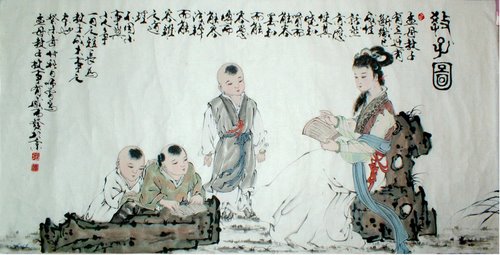17.5 What superior man does not like
子貢曰、君子亦有惡乎。子曰、有惡、惡稱人之惡者、 惡居下流而訕上者、惡勇而無禮者、惡果敢而窒者。
Zigongsaid, ‘Has the superior man his hatreds also?’ The Master said, ‘He has his hatreds. He hates those who proclaim the evil of others. He hates the man who, being in a low station, slanders his superiors. He hates those who have valour merely, and are unobservant of propriety. He hates those who are forward and determined, and, at the same time, of contracted understanding.’
-> Hatred is a strong word translated here. Looking at the meaning of the chapter, I think dislike is a better translation than hatred. Hatred implied non-acceptance, while dislike merely reflects acceptance but disagreement.
* * *
Discussion:
In the context of social right and wrong, which changes with context like time, location and culture, the Superior Man, dedicating his life to the collective good, prefers human behaviors that contributes to the collective good, and dislikes behaviors that go against it. Therefore, Confucius said, the Superior Man dislikes people who reinforces the negative; who glorify destruction and slander construction; who have guts but go against agreed society standards; and who are stubborn and narrow minded.
This differentiation of right vs. wrong, like vs. dislike, is in contrast to the Daoist core teaching of nonduality and nonself. I.e. Confucius taught us to like the good and dislike the bad; Laozi taught us to embrace all and let go of personal judgement. Are they different? On the surface they are, but at higher level of awareness, they are one. It is possible to do good non-personally, do good without a hidden agenda (unconditional), and do good without taking credit. Ponder on this.
17.5 君子亦有惡
子貢曰、君子亦有惡乎。子曰、有惡、惡稱人之惡者、 惡居下流而訕上者、惡勇而無禮者、惡果敢而窒者。
* * *
讨论:
在讨论集体利益的背景下,随着时间,地点和文化的不同,君子会宣扬那些会为整体带来利益的行为,和不喜欢(恶)那些会为整体带来损害的行为。 因此,孔子说,君子不喜欢那些的宣扬别人坏处的人,那些身居下位而诽谤在上者的人,那些勇敢而不懂礼节的人,和那些固执而又不通事理的人。
这种对与错的分别,喜欢与不喜欢,好像跟道家的无我和无为不同: 孔子教导我们喜欢好和不喜欢坏;老子教我们包容全部和不作个人批判。他们真的不同吗? 表面上是的,但在更高的层次,他们是一体的。 因为,我们可以的无我的去做好事,无条件的去做好事,和无私的去做好事。


Leave a Reply